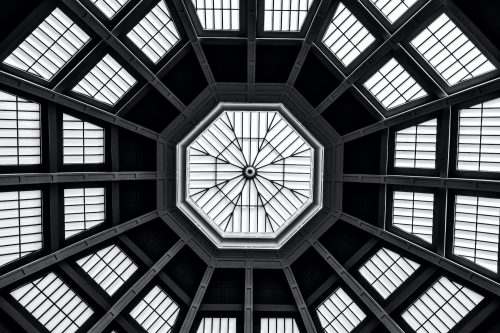This pandemic is putting things in perspective. We finally understand that an economy predicated on exponential growth isn’t a healthy economy—it’s a vulnerable one. If an economy collapses when people buy only their essentials, then it was never as strong as we pretended.
When it comes to simple living, the most recent minimalist movement gained popularity online in the aftermath of the 2008 crash. People were yearning for a solution to their newly discovered problem of debt and overconsumption. Unfortunately, over the past dozen years, we’ve once again grown too comfortable. But the enemy isn’t only consumerism now; it’s overindulgence, both material and not.
Amid the panic of the pandemic, I’ve noticed many people grappling with the question Ryan and I have been attempting to answer over the last decade: What is essential? Of course, the answer is highly individual. Too often, we conflate essential items with both nonessential items and junk. In our free ebook, The Minimalist Rulebook: 16 Rules for Living with Less, Ryan and I delineate all three categories with our “No Junk Rule”:
Everything you own can be placed in three piles.
Essentials. Few possessions should fall into this pile. These are the necessities we can’t live without: food, shelter, clothes. While the specifics change for each person, most of our needs are universal.
Nonessentials. In an ideal world, most of the things we own would fit in this pile. These are the objects we want in our lives because they add value. Strictly speaking, I don’t need a couch, a bookshelf, or a dining table in my living room, but these items enhance, amplify, or augment my experience of life.
Junk. Sadly, most of our things belong in this pile. These are the artifacts we like—or, more accurately, think we like—but they don’t serve a purpose or bring us joy. The average American home contains an overabundance of stuff—hundreds of thousands of items—and most of it is junk. While this junk often masquerades as indispensable, it actually gets in the way of a life worth living.
The key is to get rid of the junk to make room for everything else.
Right now, not only must we jettison the junk, but many of us are forced to temporarily deprive ourselves of nonessentials—those things that add value to our lives during regular times, but aren’t necessary during a crisis. If we can do this, we can discover what is truly essential, and we can eventually reintroduce the nonessentials slowly, in a way that enhances and augments our lives, but doesn’t clutter them with junk.
To complicate matters, “essential” changes as we change. What was essential five years ago may not be essential now, and so we must continually question, adjust, let go. This is especially true today where a week feels like a month; a month, a lifetime.
With the current financial crisis and a renewed search for meaning, our society will be coping with some critical realities in the not too distant future. Many new norms have been established during this crisis; others will form in its wake.
Many of us will attempt to cling to the past—to “return to normal”—but that’s like struggling to hold ice in our hands: once it melts, it’s gone. I’ve been asked, “When is this going to turn around?” Frankly, I hope it doesn’t. “Turning around” presupposes that we return to the past, to a “normal” that wasn’t working for most people—at least not in any meaningful way. While I don’t know what the future holds, I hope we emerge from this uncertainty with a new normal, one that is predicated on intentionality and community, rather than “consumer confidence.”
To get there, we must simplify again.
We must clear the clutter to find the path forward.
We must find the hope beyond the horizon.
I had a conversation recently with one of my mentors, Karl Weidner, who showed me the Chinese characters for the word “crisis”—weiji—which signify “danger” (wei) and “opportunity” (ji), respectively. While there are arguments among linguists as to whether the character for ji actually means “opportunity,” the analogy is still apt: a crisis exists at the intersection of danger and opportunity.
We are undoubtedly in a crisis. A heightened sense of danger lingers in the ether. But opportunity is also in the air. Surrounded by danger, we have the opportunity to, as my friend Joshua Becker says, “Use these days to reevaluate everything.”
Maybe we needed this. Let us not waste this opportunity to reevaluate everything, to let go, to start anew. The best time to simplify was during the past decade. The second best time is now.

